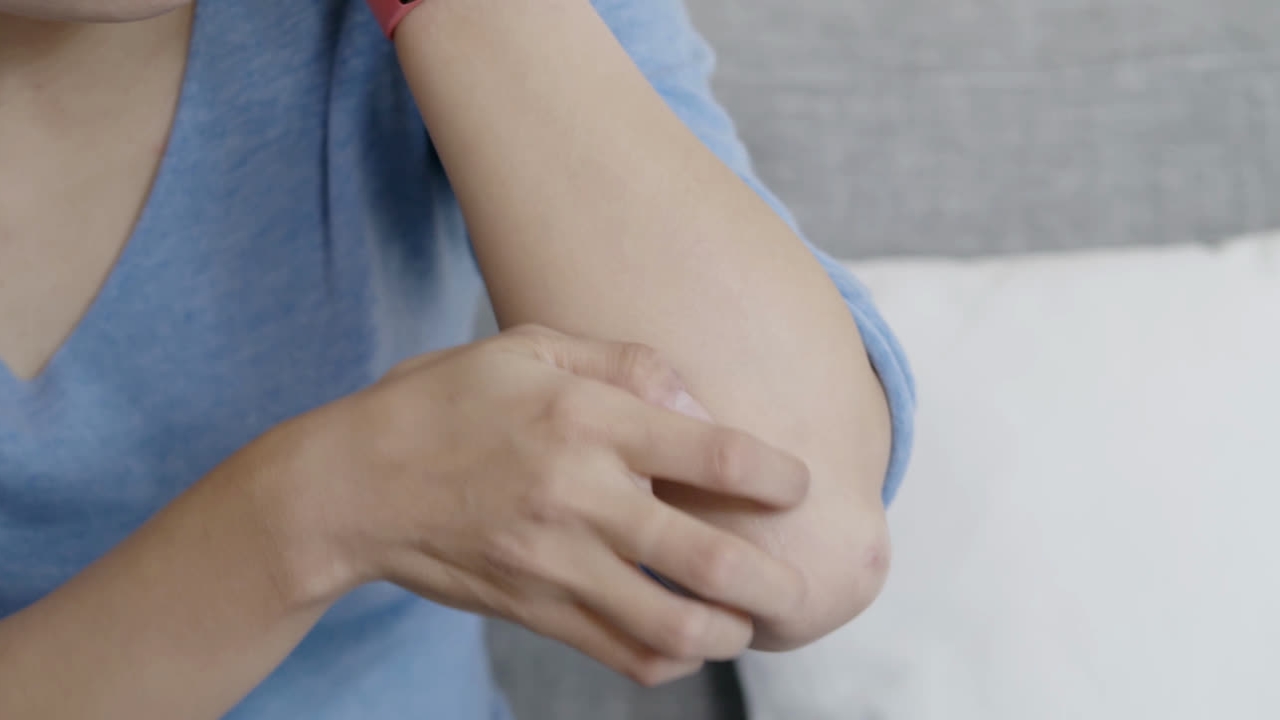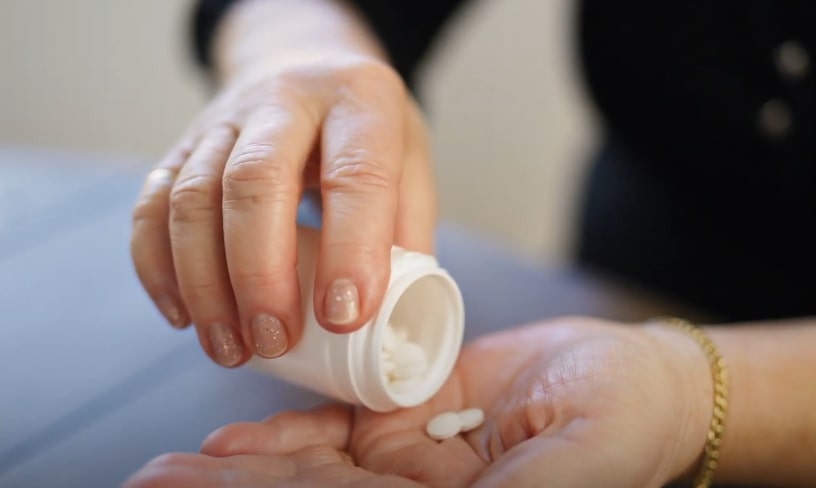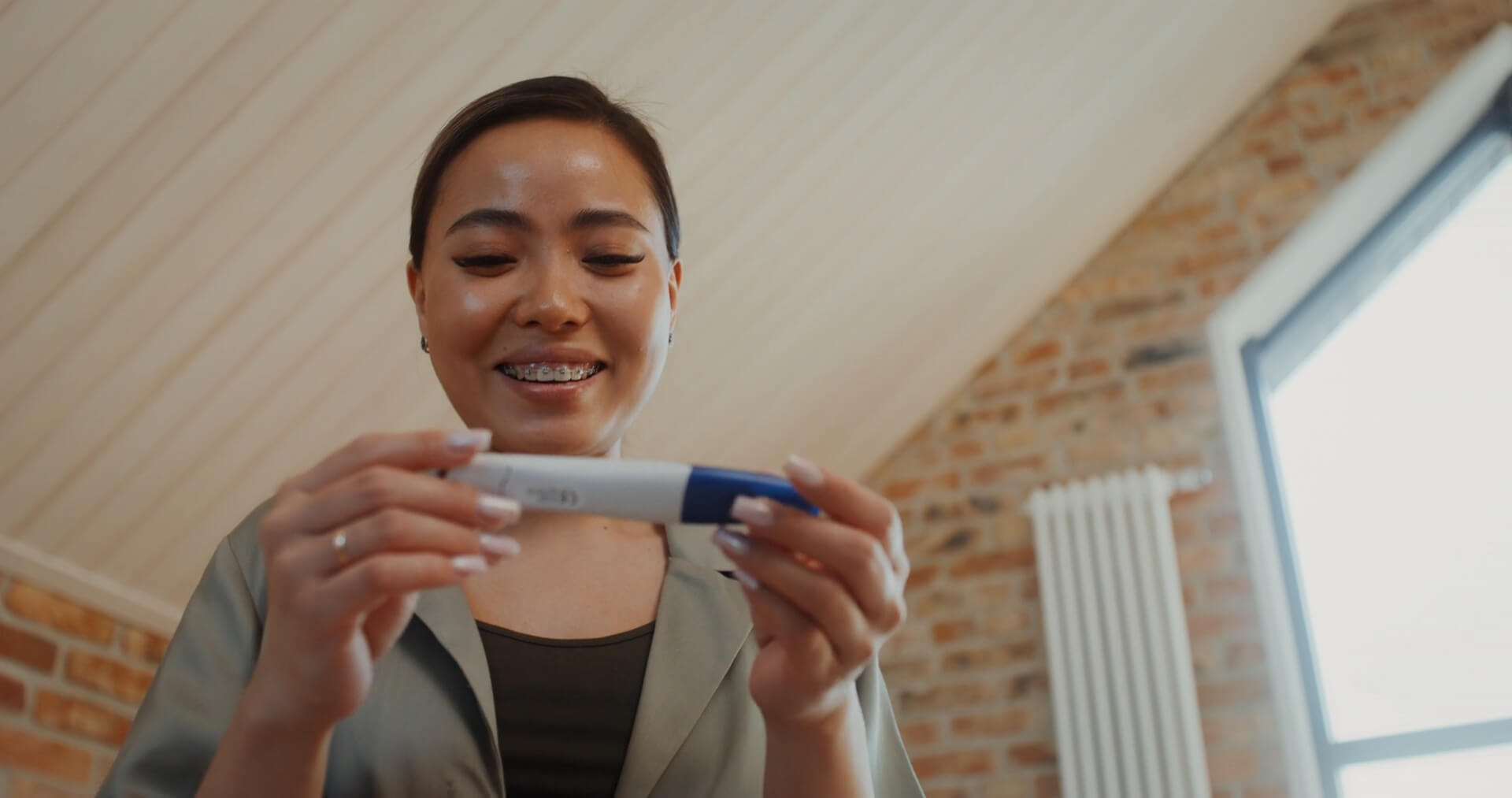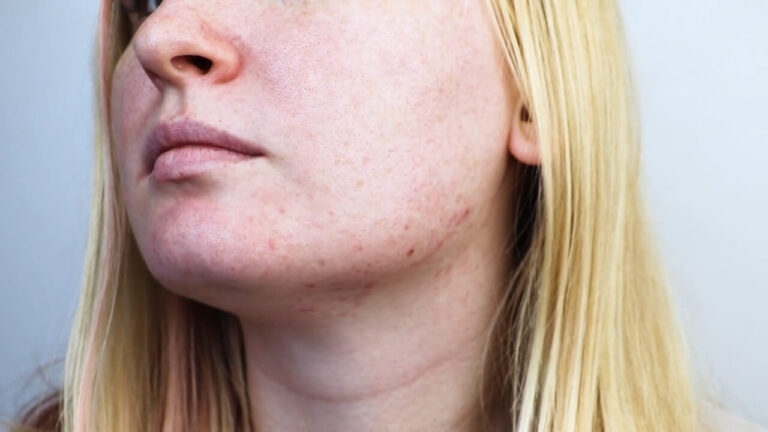Starting treatment with Accutane can be a major decision, especially considering its powerful effects on severe acne. However, it’s crucial to be informed about what this medication might do to your body.
Learning more about the benefits and the risks will help you make the best choice for your health. This article covers everything you need to know before starting to use Accutane.
An Overview
| Drug Name | Accutane (Isotretinoin) |
| Primary Use | Treating severe acne |
| Administration | Oral (Capsules) |
| Typical Dosage | 0.5 to 1 mg/kg/day |
| Duration of Treatment | 15 to 20 weeks |
| Common Side Effects | Dry skin, chapped lips, dry eyes |
| Serious Risks | Birth defects, psychiatric effects, liver damage |
| Monitoring Required | Monthly blood tests, pregnancy tests for women |
| Not Recommended For | Pregnant women, people with liver disease |
How Accutane Works?
Accutane, also known as isotretinoin, is a powerful medication derived from vitamin A. It works primarily by reducing the amount of oil (sebum) produced by the skin’s sebaceous glands. Lower oil production helps prevent the clogging of pores, a major cause of severe acne, and also reduces the presence of acne-causing bacteria.
Patients usually start with a dosage between 0.5 to 1 mg/kg/day, which is carefully calculated based on their body weight and the severity of their acne. The treatment course generally lasts between 15 to 20 weeks, with most patients requiring a single cycle. Clinical studies report that about 95% of patients experience significant improvements in their acne, with some achieving complete remission.
However, the effectiveness of Accutane comes with potential downsides. Around 32.7% of patients experience a relapse within a year after completing treatment, especially if lower doses are used. Increasing the cumulative dose can help lower this relapse rate, though it also raises the risk of side effects, including severe dryness, joint pain, and elevated lipid levels. Regular monitoring through blood tests is essential to manage these risks effectively.
Common Side Effects
Accutane is effective, but it comes with a range of common side effects that nearly every user experiences. Understanding these can help you prepare and manage them effectively.
Dryness and Skin Issues

One of the most common side effects is severe dryness, which affects:
- Skin: Expect significant dryness, especially on the face, which can lead to irritation and peeling.
- Lips: Almost all users deal with chapped lips. Using a strong lip balm regularly is crucial.
- Eyes: Dry eyes are common, and some may need to use lubricating eye drops daily.
- Nose: Nosebleeds can occur due to the dryness inside the nose, especially in colder climates.
Sun Sensitivity
Accutane makes the skin more sensitive to sunlight, increasing the risk of sunburn. To protect your skin:
- Sunscreen: Apply a broad-spectrum sunscreen daily.
- Protective Clothing: Wearing hats and long sleeves can help minimize sun exposure.
Initial Worsening of Acne
During the first few weeks, your acne might get worse before it improves. This phase, often called the “Accutane purge,” can be frustrating, but it usually subsides after the initial period.
How to Deal with Common Side Effects

Regular moisturizing and using products designed for sensitive skin can help manage these side effects.
- Moisturizers: Use an oil-free moisturizer twice daily to combat dryness without clogging pores.
- Lip Care: Apply a heavy-duty lip balm multiple times a day to keep lips hydrated.
- Eye Care: If you experience dry eyes, over-the-counter lubricating eye drops can provide relief.
- Nose Care: To prevent nosebleeds, apply a small amount of petroleum jelly inside your nostrils to keep the tissue moist.
Serious Risks
Accutane is known for its effectiveness in treating severe acne, but it also carries serious risks that should be fully understood before starting treatment. These risks can have long-term implications and require careful monitoring.
Birth Defects and Pregnancy Risks

Accutane poses a significant risk of causing severe birth defects. It is crucial that women who can become pregnant adhere to strict guidelines:
- Pregnancy Tests: Regular pregnancy tests are mandatory before, during, and after treatment.
- Contraception: Two forms of birth control must be used simultaneously. This continues for at least one month after stopping the medication.
- iPLEDGE Program: Participation in the iPLEDGE program is required, ensuring that the patient fully understands the risks and follows necessary precautions.
Psychiatric Effects
While the overall risk is low, Accutane has been linked to psychiatric effects in some users:
- Depression: Studies indicate that about 3.83% of users may experience depression during treatment. This is comparable to the general population but still significant.
- Suicidal Thoughts: A small percentage of users (0.14%) may develop suicidal thoughts. Although this is rare, it is a serious risk that requires immediate attention if symptoms arise.
Liver and Lipid Levels
Accutane can impact liver function and lipid levels:
- Liver Function: Regular blood tests are essential to monitor liver enzymes. Elevated levels can indicate liver stress or damage.
- Lipid Levels: The medication can increase cholesterol and triglycerides. Patients might need dietary changes or medication to manage these levels during treatment.
Psychiatric Effects
Accutane has been associated with a range of psychiatric effects, though these risks are relatively low compared to the general population. However, understanding these potential effects is critical for anyone considering or currently undergoing treatment.
Depression and Mood Changes

Accutane users may experience mood changes, with 3.83% of users developing depression during treatment. While this percentage is comparable to the general population, the impact of depression on those affected can be significant. Users might experience:
- Increased Sadness: A noticeable drop in mood, often without a clear cause.
- Loss of Interest: A reduced interest in activities that were once enjoyable.
- Fatigue and Low Energy: Persistent tiredness and lack of motivation.
Suicidal Thoughts and Behavior
While rare, Accutane has been linked to suicidal thoughts and behaviors. The risk is around 0.14%, but due to the severity of this side effect, any signs of suicidal ideation should be addressed immediately. Warning signs include:
- Sudden Mood Swings: Rapid changes in mood, from extreme sadness to irritability.
- Withdrawing from Social Interaction: Avoidance of family and friends, which could indicate worsening depression.
- Thoughts of Self-Harm: Any thoughts or actions related to self-harm require urgent medical attention.
Musculoskeletal Impact
Accutane can have notable effects on the musculoskeletal system, which may present during treatment or persist afterward. These effects can range from mild discomfort to more serious complications, especially in younger users whose bodies are still developing.
Joint and Muscle Pain

A significant number of Accutane users report experiencing joint and muscle pain during treatment. This is more common in those who are physically active or engage in strenuous exercise. The symptoms may include:
- Back Pain: A common complaint among users, often mild but sometimes more severe.
- Joint Stiffness: Especially noticeable in the knees, ankles, and wrists.
- Muscle Aches: Generalized muscle pain, which can make physical activity uncomfortable.
Bone Health Concerns
Accutane has been linked to issues with bone health, particularly in adolescents:
- Premature Closure of Growth Plates: In rare cases, Accutane can cause the early closure of growth plates in bones, potentially affecting height in those who are still growing.
- Osteoporosis Risk: Some studies suggest that long-term use might increase the risk of osteoporosis, although this is less common and generally associated with extended, high-dose treatments.
Long-Term Consequences
Accutane is known for its effectiveness in treating severe acne, but its long-term effects on the body can be significant and, in some cases, permanent. Understanding these potential consequences is crucial for making an informed decision about the treatment.
Persistent Dryness and Skin Issues
Even after completing Accutane treatment, some users continue to experience dryness in various parts of the body:
- Skin: Persistent dryness, particularly in areas like the face and hands, can last for months or even years after treatment.
- Lips: Chronic chapped lips may continue as a result of long-term reduction in sebum production.
- Eyes: Dry eyes can remain an issue, requiring ongoing use of lubricating eye drops.
Gastrointestinal and Neurological Effects
Some patients report long-term gastrointestinal and neurological symptoms post-treatment:
- Gastrointestinal Issues: There have been cases where patients develop conditions like irritable bowel syndrome (IBS) or chronic constipation after using Accutane.
- Neurological Symptoms: Symptoms such as brain fog, chronic fatigue, and headaches have been reported by some users, though the exact connection to Accutane remains under investigation.
Sexual Dysfunction
A less commonly discussed long-term effect is sexual dysfunction, which some users experience long after discontinuing Accutane:
- Erectile Dysfunction: Some male users have reported difficulties with erectile function that persist post-treatment.
- Libido Changes: Both men and women have reported a decrease in libido that doesn’t fully return to normal after stopping the medication.
Monitoring During Treatment
Monitoring your health during Accutane treatment is critical to ensure that any potential side effects are detected and managed early. Regular check-ups and tests are mandatory for anyone undergoing this treatment, given the medication’s powerful effects on the body.
Blood Tests
Monthly blood tests are required throughout the treatment to monitor various health indicators:
- Liver Function: Accutane can impact liver health, so liver enzymes are checked to ensure they remain within safe levels.
- Lipid Levels: The medication often raises cholesterol and triglycerides, which are also monitored regularly. Significant increases may require dietary changes or additional medication.
Pregnancy Tests
For women who can become pregnant, strict monitoring is in place due to the severe risk of birth defects:
- Monthly Tests: Women must undergo monthly pregnancy tests before each prescription refill to confirm they are not pregnant.
- Contraceptive Measures: Continuous use of two forms of contraception is mandatory to prevent pregnancy during treatment and for one month after stopping the medication.
Mental Health Monitoring
Given the potential for psychiatric effects, regular mental health check-ins are also crucial:
- Mood Assessments: Doctors will often ask about changes in mood, feelings of depression, or any suicidal thoughts.
- Support System: Having a strong support system in place can help detect early signs of mood changes that might otherwise go unnoticed.
Who Should Avoid Accutane?
Accutane is a powerful medication, and not everyone is a suitable candidate for its use. Certain groups of people should avoid Accutane due to the significant risks involved, which can outweigh the potential benefits.
Pregnant Women or Those Planning to Become Pregnant

Accutane is strictly contraindicated for women who are pregnant or planning to become pregnant due to the extremely high risk of severe birth defects. This includes:
- Severe Birth Defects: Even a small dose of Accutane can cause serious developmental issues in a fetus.
- Miscarriage and Stillbirth: The medication also increases the risk of miscarriage and stillbirth.
- Mandatory Contraception: Women of childbearing potential must use two forms of contraception simultaneously and undergo regular pregnancy tests to avoid these risks.
People with Liver Disease
Accutane is metabolized by the liver, making it unsuitable for individuals with existing liver conditions:
- Liver Function Impact: The medication can significantly strain the liver, leading to elevated liver enzyme levels.
- Monitoring Challenges: Those with compromised liver function might not be able to safely undergo the regular blood tests required during Accutane treatment.
People with High Blood Lipid Levels
Accutane can raise cholesterol and triglyceride levels, which poses a risk for individuals who already have high blood lipid levels:
- Increased Risk: Those with pre-existing high cholesterol or triglycerides may face an increased risk of cardiovascular issues during treatment.
- Diet and Medication: Managing lipid levels might require additional dietary changes or medication, which could complicate the treatment process.
Patients with a History of Mental Health Issues
Accutane has been linked to mood changes and, in rare cases, more severe psychiatric effects:
- Depression and Anxiety: Individuals with a history of depression, anxiety, or other mental health disorders should approach Accutane with caution.
- Suicidal Thoughts: The risk of developing suicidal thoughts, although low, requires careful consideration and regular mental health check-ups for those with a history of such issues.
What to Expect After Treatment
After completing a course of Accutane, many patients experience long-term improvements in their acne, but the journey doesn’t end with the last dose. Understanding what to expect in the weeks and months following treatment can help you manage any lingering effects and maintain clear skin.
Post-Treatment Skin Condition
Most patients see significant improvements in their acne after completing Accutane:
- Long-Term Remission: Many experience long-term or even permanent remission of severe acne.
- Residual Dryness: Some may continue to experience dryness in their skin, lips, and eyes for several months after stopping the medication.
Risk of Relapse
While Accutane is effective, there is still a possibility of acne returning:
- Relapse Rates: Studies show that about 32.7% of patients experience a relapse within one year of completing treatment.
- Severity of Relapse: Relapses are generally less severe than the original acne, but in some cases, another course of treatment may be needed.
Monitoring and Maintenance
Continued monitoring of your skin and overall health is crucial after finishing Accutane:
- Regular Dermatologist Visits: Follow-up appointments with your dermatologist help monitor any potential return of acne and address any persistent side effects.
- Skincare Routine: Maintaining a gentle skincare routine that includes moisturizers and sunscreen can help keep your skin healthy and minimize the risk of irritation or damage.
FAQs
Last Words
Accutane is a highly effective treatment for severe acne, but it comes with a range of potential side effects and risks that require careful consideration and monitoring. Understanding how Accutane works, the common and serious risks, and how to manage those risks is crucial for anyone considering or currently using this medication.

